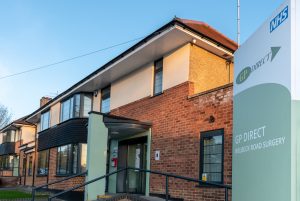We offer blood tests at our Welbeck Road and Eastcote Lane surgeries throughout the week on a selection of mornings and afternoons.
Please do remember to bring your blood test form to your appointment to ensure the phlebotomist knows what needs to be tested.
If your blood test is for a fasting sample please ensure you fast for 10 hours prior to your test (no eating or drinking except water).
Why might I need a blood test?
Blood tests have a wide range of uses and are one of the most common types of medical test.
For example, a blood test can be used to:
- assess your general state of health
- check if you have an infection
- see how well certain organs, such as the liver and kidneys, are working
- screen for certain genetic conditions
Preparing for a blood test
The healthcare professional who arranges your blood test will tell you whether there are any specific instructions you need to follow before your test.
What happens during a blood test?
A blood test usually involves taking a blood sample from a blood vessel in your arm.
A tight band (tourniquet) is usually put around your upper arm. This squeezes the arm, temporarily slowing down the flow of blood and causing the vein to swell. This makes it easier for a sample to be taken.
Before taking the sample, the phlebotomist or clinician may clean the area of skin with an antiseptic wipe.
A needle attached to a syringe or special container is inserted into the vein. The syringe is used to draw out a sample of your blood. You may feel a slight pricking or scratching sensation as the needle goes in, but it shouldn’t be painful. If you don’t like needles and blood, tell the person who is taking the sample so they can make you more comfortable.
When the sample has been taken, the tourniquet will be released, and the needle will be removed. Pressure is applied to the skin for a few minutes using a cotton-wool pad. A plaster may be put on the small wound to keep it clean.
After the test
Only a small amount of blood is taken during the test so you shouldn’t feel any significant after-effects.
However, some people feel dizzy and faint during and after the test. If this has happened to you in the past, tell the person carrying out the test so they’re aware and can help you feel more comfortable.
After the test, you may have a small bruise where the needle went in. Bruises can be painful, but are usually harmless and fade over the next few days.
Blood test results
Our policy is to ask patients to contact us after 14 days for the results.
Please either contact the surgery here or call the surgery on 0208 515 9300, preferably after 10:00, and a member of the reception team will either relay your results to you or book you in for a telephone or face to face consultation with the relevant clinician.
However in the most urgent cases a member of staff will contact you regarding your results.













